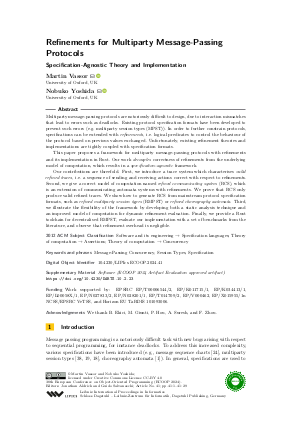LIPIcs.ECOOP.2024.41.pdf
- Filesize: 1.15 MB
- 29 pages

 Creative Commons Attribution 4.0 International license
Creative Commons Attribution 4.0 International license










Feedback for Dagstuhl Publishing